


How did fascist Javier Milei win with over 30% the Argentinian primary elections? Who is behind him? And how many far-right candidates also received financing from these oligarchs?
On August 13th, the progressive world looked on with horror as the Argentinian elections were infiltrated by fascist sharks. The word fits as these self-described “sharks” from the Atlas Network are financially backing Javier Milei and his Fascist Party, La Libertad Avanza. They also underwrote his far-right competitors from Juntos Por El Cambio—both Patricia Bullrich and Horacio Rodríguez Larreta. The Atlas Network has also provided funding and support to Mauricio Macri in the past, as well as to many far-right politicians in Latin America and around the world.

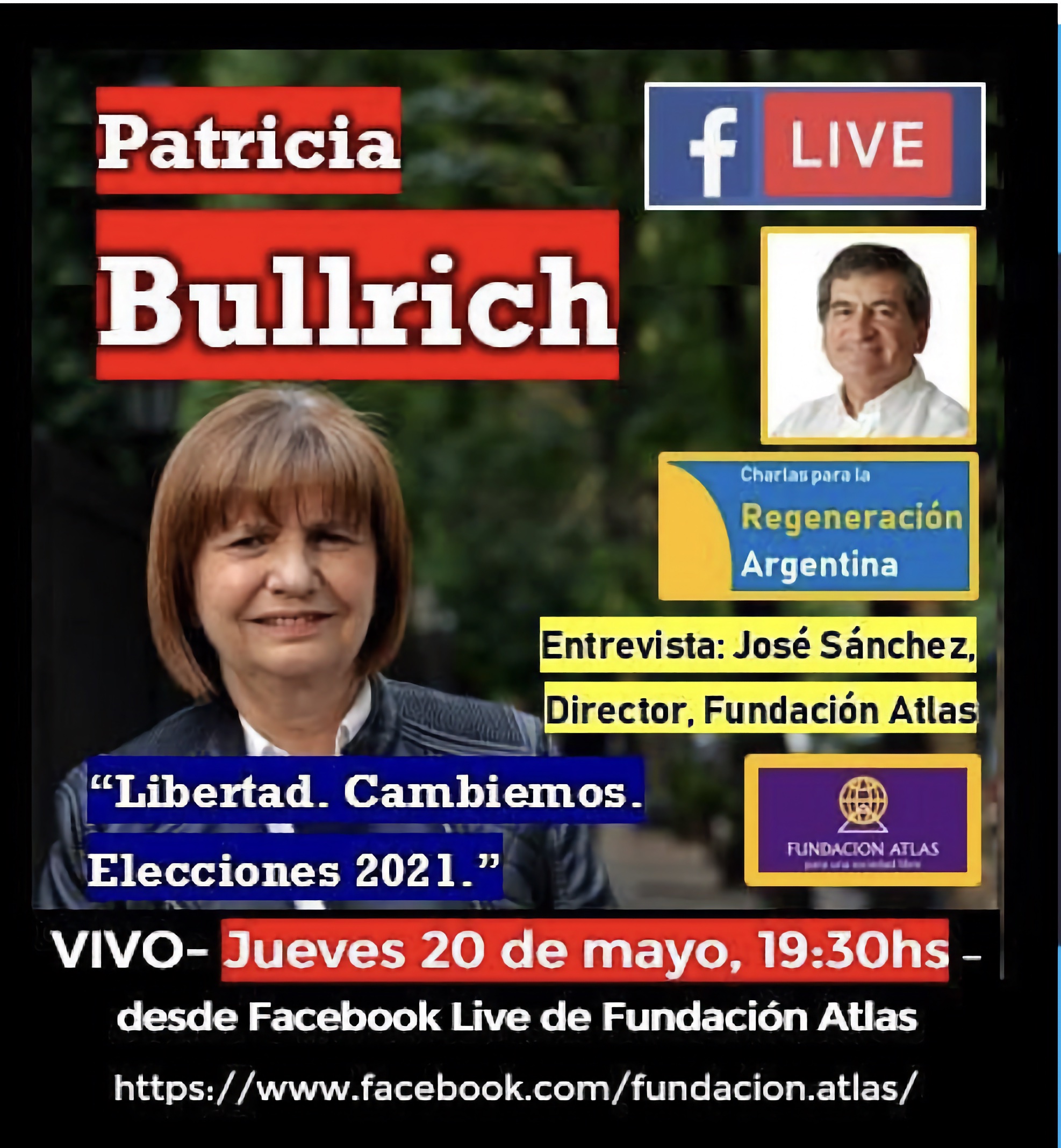
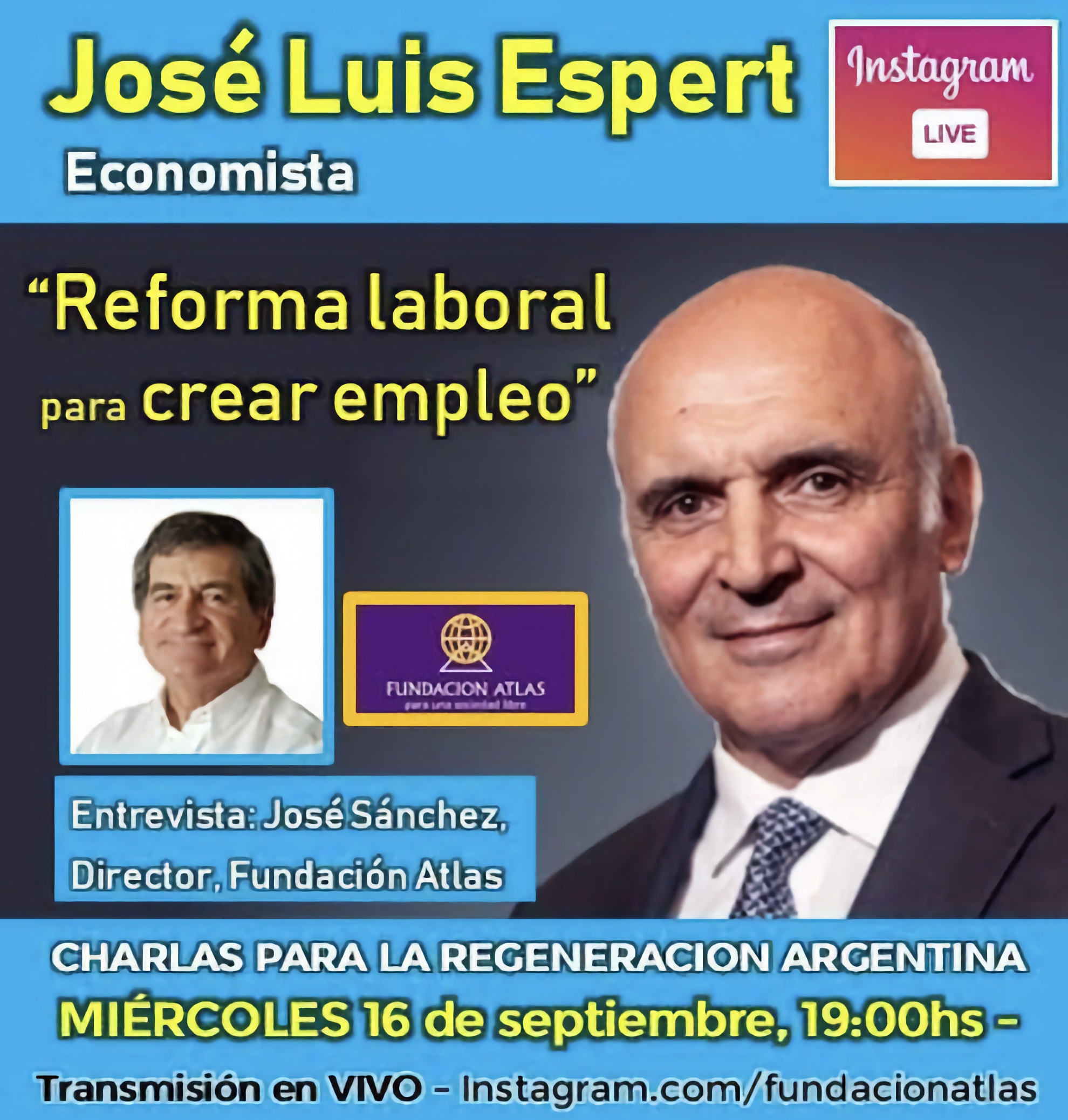
Another sponsor of far-right extremism is the hate speech-infested, oligarchic media monopoly known as Grupo Clarín. The Atlas Network has strong ties with Grupo Clarín, a conglomerate that owns over 80% of the TV, radio, press, and digital newspaper coverage in Argentina. This same media monopoly collaborated with the Videla Dictatorship during the 1970s.
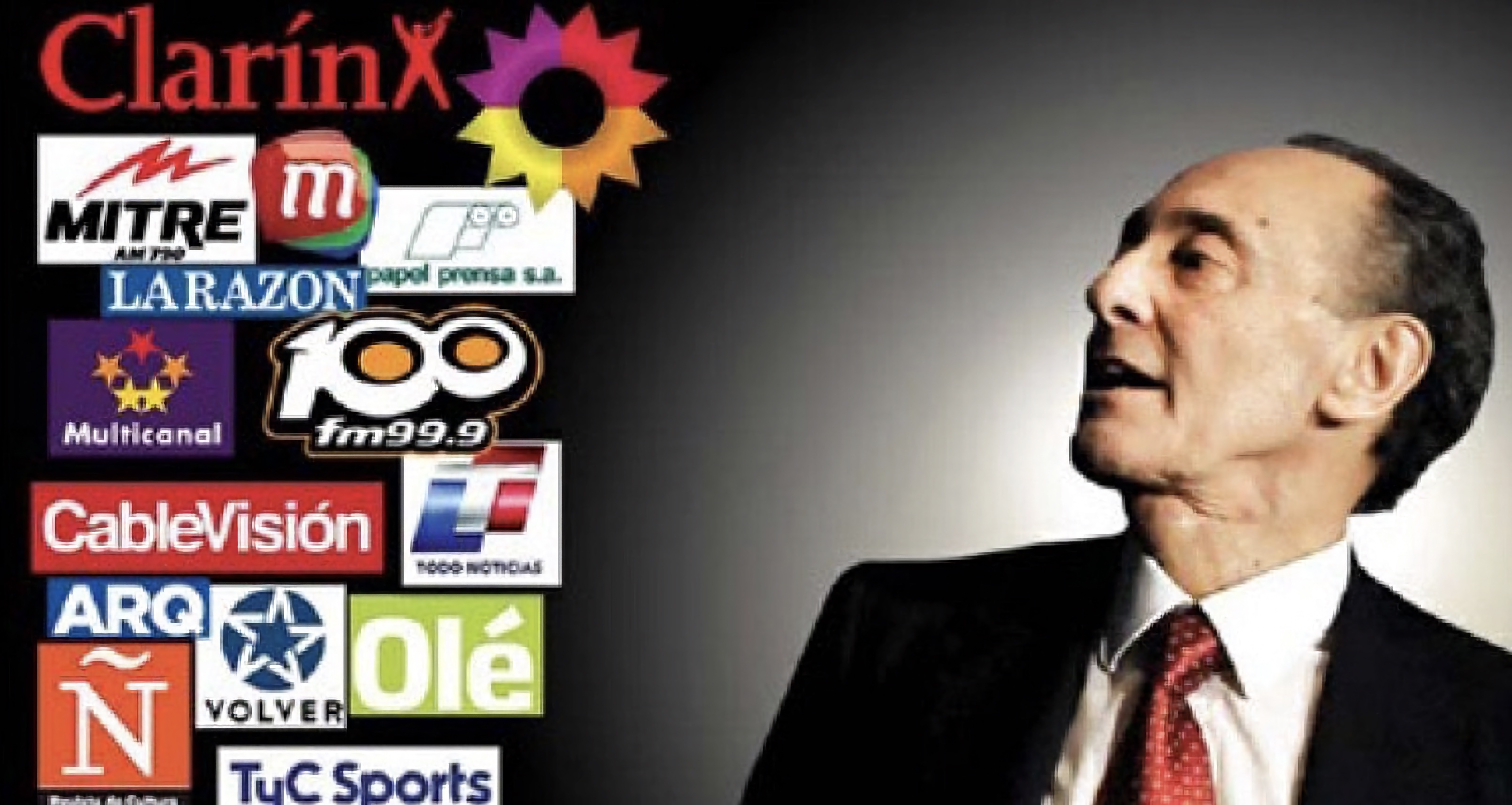
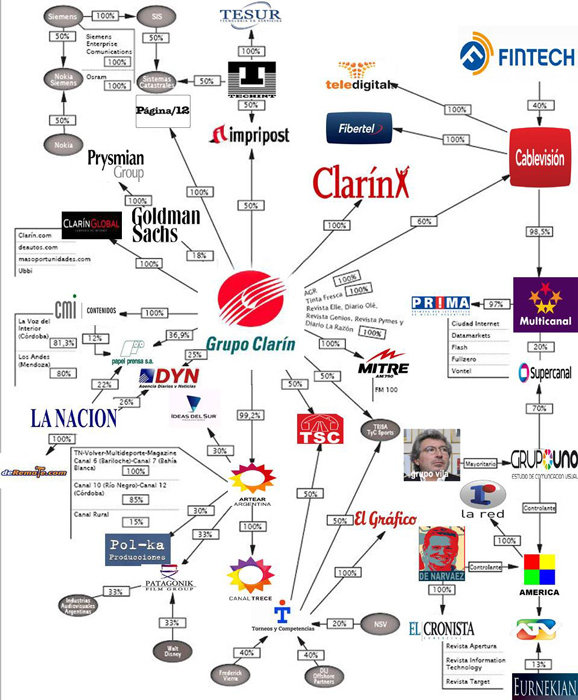
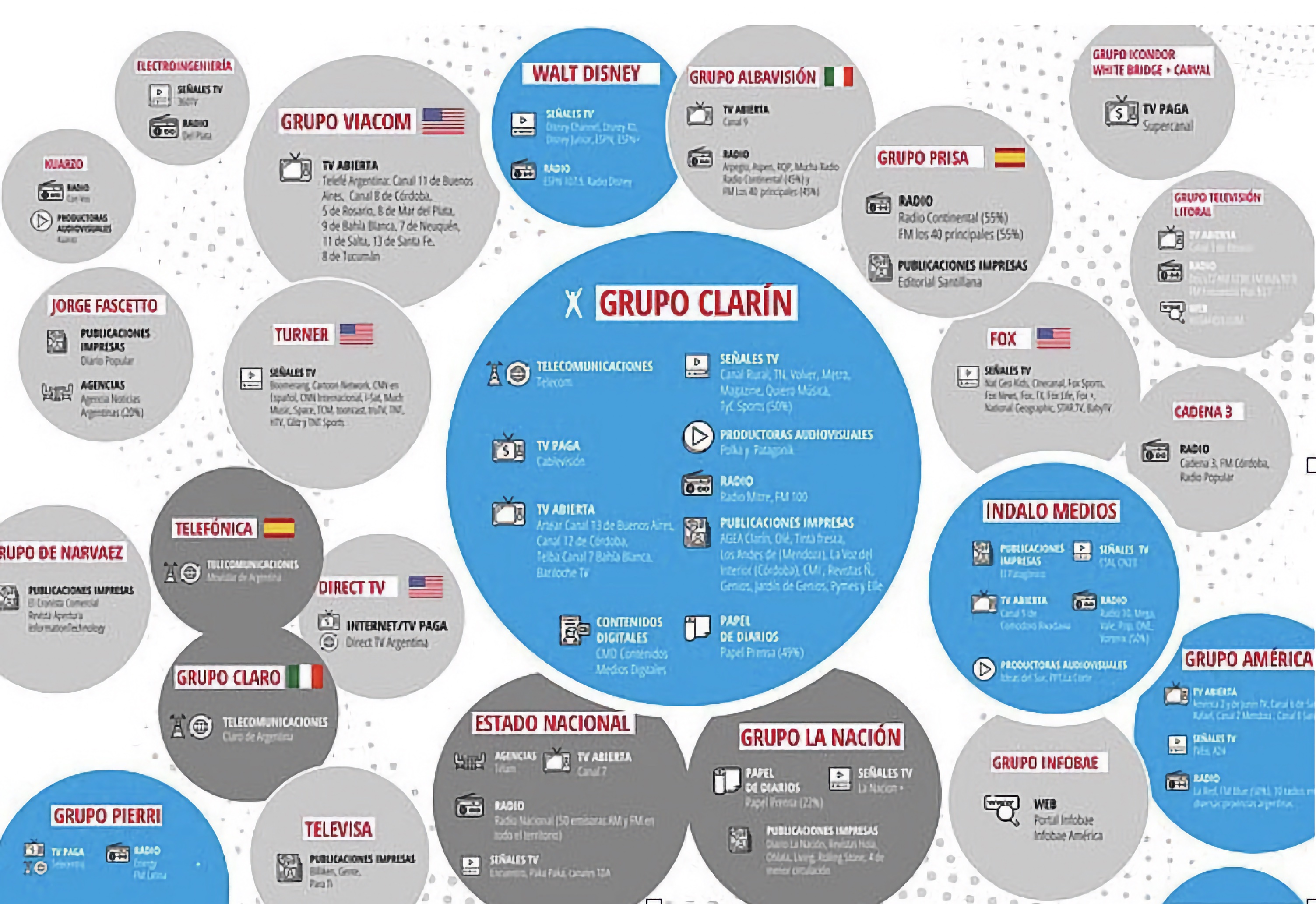
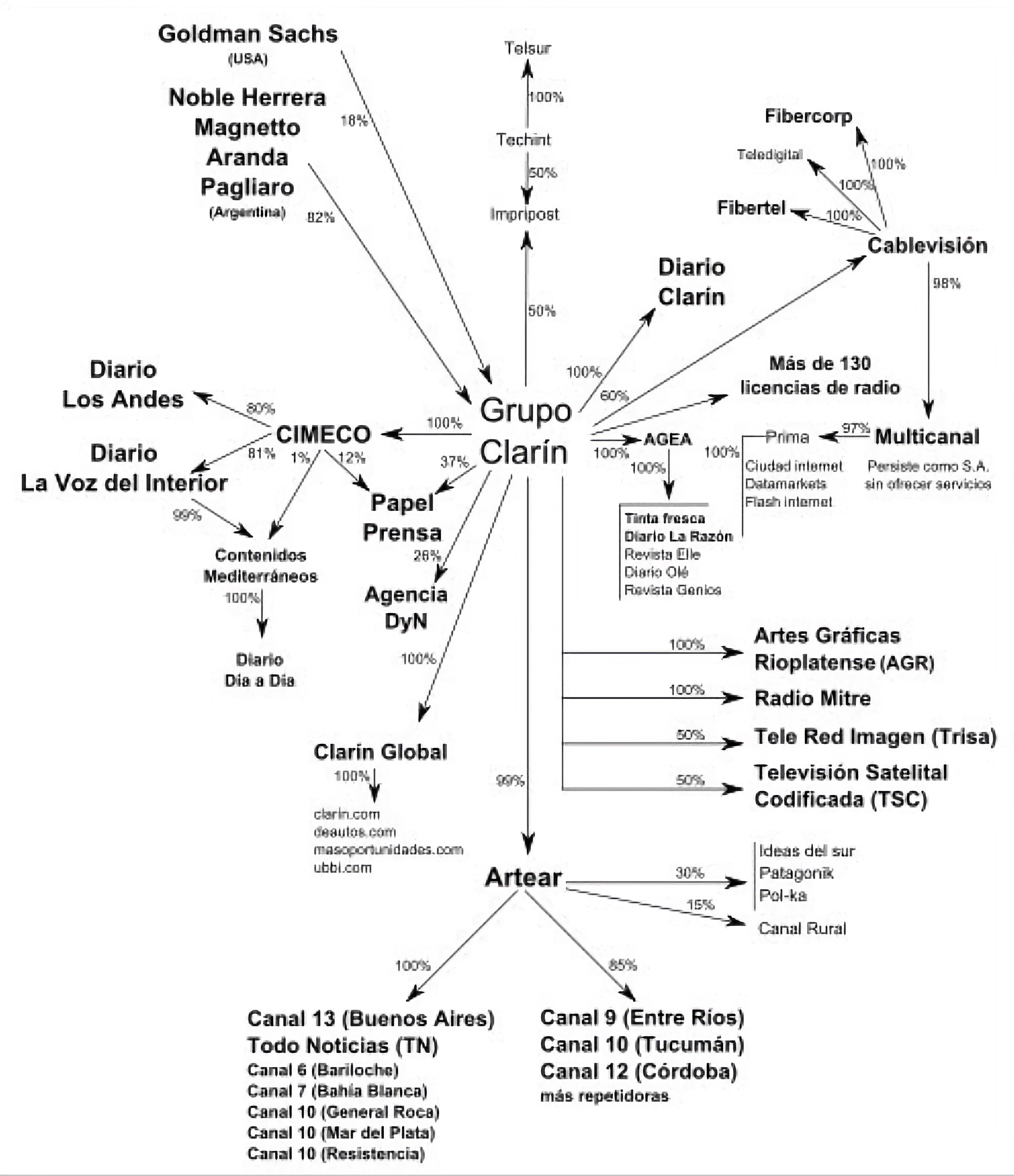
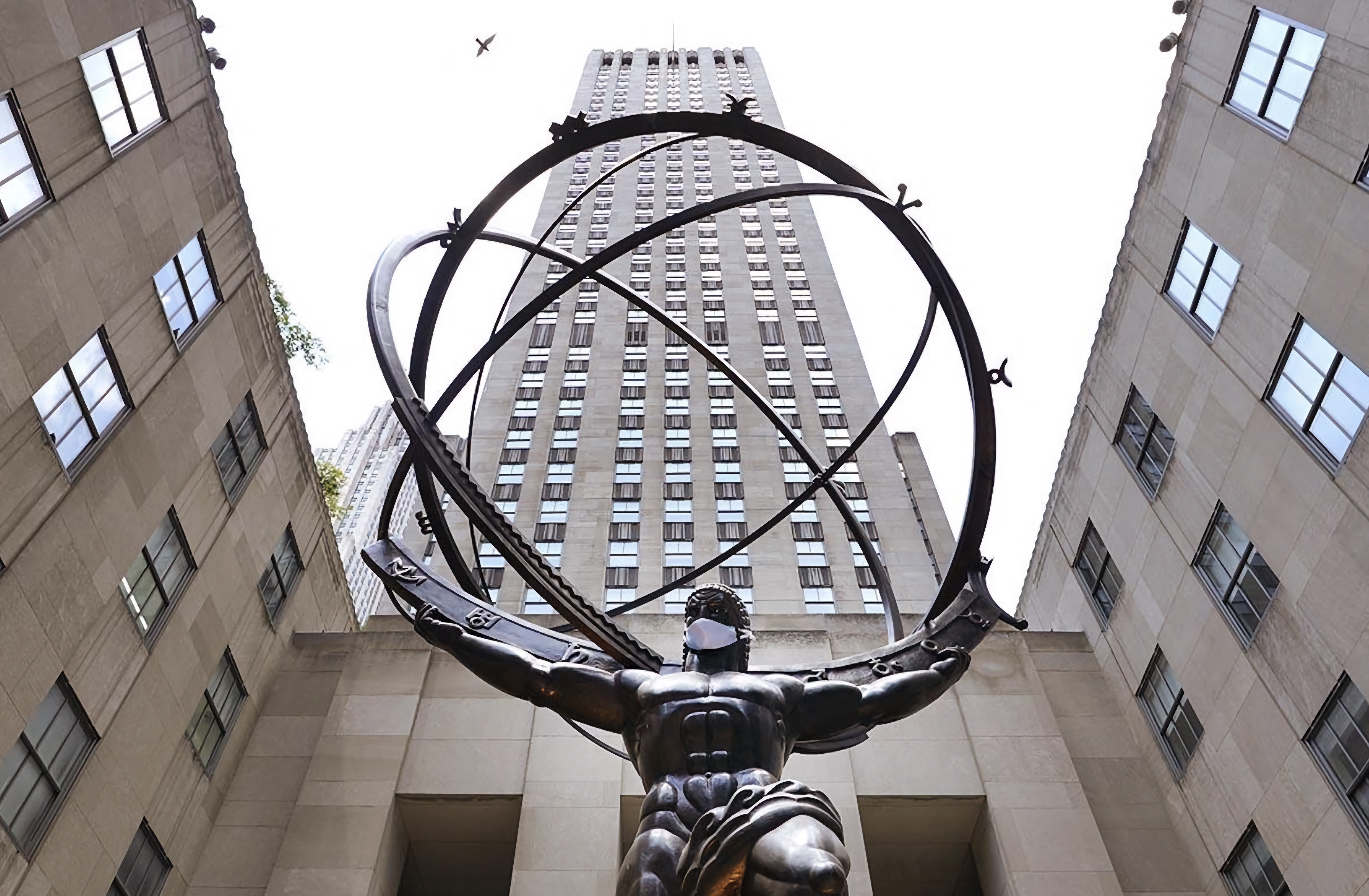
The persistent processes of political destabilization in Venezuela against the government of Nicolás Maduro, the displacement through impeachment of former president Dilma Rousseff in Brazil, and the coup d’état against Evo Morales in Bolivia are among the events that had the veiled but active participation of Atlas Network through their local contacts. The propagation of fake news against the constitutional leaders also made a significant contribution. The libertarian cadres in economics and ultra-conservatives in regional politics that the NGO formed accompanied various dismissal processes.
Tightly-organized and generously funded by the imperialist United States pharmaceutical, oil, and tobacco industries, the “libertarian” network brings together politicians, businessmen, and media determined to “extend the reign of the market to all areas of social life.”
They have been conspiring for years, yet they went unnoticed by the collective imagination. Their strength is rooted in a certain discretion, aimed at not revealing their true nature as fascist pressure groups. They operate under the guise of a think tank. Among all of them, Atlas Network is the most ubiquitous network that influences Latin America. Atlas receives generous funding and interacts with hundreds of satellite organizations.
The network receives financial support from other foundations: large corporations (Pfizer, Shell, Exxon Mobil, Philip Morris, Procter & Gamble, and more), to which it occasionally provides “market surveys” and “investigations”; billionaires, such as brothers Charles and David Koch, members of one of the ten wealthiest families in the world; and the US State Department and its National Endowment for Democracy, an organization based in Washington and funded by Congress which is considered the soft power arm of the CIA. This organization states on its website that, since its establishment in 1983, “it has remained at the forefront of democratic struggles worldwide.” In 1985, shortly after becoming operational, the network had 27 associated institutions in 17 countries. By 2021, that number had grown to over 500, spanning 98 countries. Brad Lips stated in January 2020 that the Atlas Network’s aggregate annual budget was nearly $909 million, with an average contribution from its members of just under $500,000.
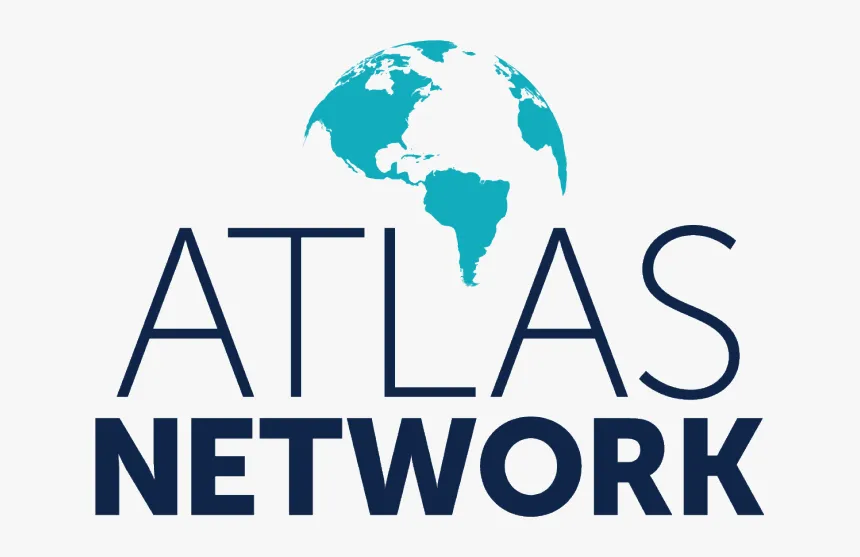
It was established in 1981 under the name Atlas Economic Research Foundation by Antony Fisher, a British devotee of ultra-liberal Austrian Nobel Prize winner in economics Friedrich von Hayek and a Thatcherite guru. The Atlas Network functions as a federation of foundations, think tanks, and academic institutions with the goal of disseminating free market policies globally. Fisher’s lifelong mission was “upholstering the world with pro-free market think tanks.” Key objectives of its main leaders include reducing taxes for corporations (or maintaining them at exceptionally low levels to supposedly incentivize job creation), privatizing public companies and the educational system, minimizing the role of the State, diminishing the power and influence of unions, and dismantling social security systems. In brief, they constitute The Fascist International.
They supported in part the anti-quarantine demonstrations worldwide, spanning from Madrid to Buenos Aires and from the United States to Brazil. These protests were fueled by right-wing opposition forces or sitting presidents such as Trump and Bolsonaro, rekindling the network’s visibility. The pioneer of this movement, Fisher, passed away in 1988, but he entrusted his legacy to an Argentine who chaired the foundation from 1991 to 2017: Alejandro Antonio Chafuen. Chafuen is a figure with extensive experience in the economic and academic realms of the US, who also made his mark in Argentina through his involvement in the liquidation of the financial company Coimpro. In 2005, he was handed a sentence by the National Court of Appeals in Federal Administrative Litigation.
Fisher’s ideological legacy is not minor. In 1955, he founded the Institute of Economic Affairs (IEA) in London, a precursor to what would evolve into Margaret Thatcher’s Conservative Revolution during the 1980s. Another product of his vision, the Atlas Network, stands as a hub that now encompasses over five hundred foundations, NGOs, and lobbying groups, all equipped with substantial resources in service of the ultraliberal ideology that advocates for minimizing the state’s role. On his résumé, Chafuen, who waxes nostalgic for the ’76 military dictatorship, asserts that he contributed to the distribution of over thirty million dollars in private donations to economic research institutes through the network. The Argentine Subsidiary of Atlas – now appended with “for a free society” in its name – is under the leadership of Eduardo Maschwitz, a banker who routinely directs Comafi and endorsed the initiative of its founders Guillermo M. Yeatts and José Esteves. This organization boasts a lengthy history, having been established on November 9, 1998.
On the international front, Atlas maintains connections with the upper echelons of the US government. Their affiliations with the State Department and the NED (National Endowment for Democracy) are evident in their own publications, despite their disavowal of state intervention in the economy. Spanish social networks expert Julián Macías Tovar provided a revealing X-ray the group established by Fisher in ’81 during an interview conducted by Gustavo Sylvestre on his radio program in 2021: “There is a network, the Atlas Network, which comprises more than 580 foundations, and some of them joined the Macri project in 2014. They possess an economic libertarian nature but also maintain numerous ties with the extreme right.”
Macías Tovar oversees the Digital Pandemic site, which analyzes the conduct of accounts, trolls, bots, and disinformation operations within this digital framework. During the interview, he also proposed that “there is an Operation Condor 2.0 with financing from the United States. And in Argentina accounts that support Trump or Bolsonaro, some of them also have an affectionate reminder of Videla.”
Chafuen remains aligned with that viewpoint. In 1979, at the age of 25, he penned an essay titled “War Without End,” in which he drew a comparison between left-wing groups and the Manson Clan, the perpetrators of the murder of Sharon Tate, the actress and wife of film director Roman Polansky, in Beverly Hills. He also expressed his perspective on Argentina, stating that “the army had acted out of necessity to prevent a communist takeover of the country.”
Few analysts have delved into Atlas and its enduring influence across various countries. Aram Aharonian and Álvaro Verzi Rangel, from the Communication and Democracy Observatory of the Latin American Center for Strategic Analysis (CLAE), highlighted in a publication dated October 9, 2017: “The capitalist international exists, it is mobilized by the extreme right-wing libertarian movement and, obviously, it is very well financed: it works through an immense conglomerate of foundations, institutes, NGOs, centers and societies linked together by barely detectable threads, among which stands out the Atlas Economic Research Foundation, or the Atlas Network.”
The investigative journalism outlet The Intercept also took an interest in the Atlas Network. One of its top journalists, Lee Fang, recounted how during a meeting held in Argentina in May 2017 at the Brick Hotel in the Recoleta neighborhood, Chafuen revealed that his work over so many years had begun to bear fruit. Following this gathering organized by Atlas and the Argentine branch of Fundación Libertad, internationally chaired by Mario Vargas Llosa, Fang wrote: “For many, Chafuen from his position at Atlas has been a mentor, a financial sponsor and a beacon that guided them towards new political models.”
Chafuen gave a clue in that note from The Intercept: “I was in the street demonstrations in Brazil. Suddenly, I realize that a boy I had known as a teenager was now in the bed of a truck leading the protests. Crazy!” said the Argentine economist, photographed wearing a Brazilian team shirt during the protests against Dilma. A few years later, he was active on his Twitter account, interchangeably supporting ads by Mike Pompeo and Jair Bolsonaro. For its part, the US-based organization maintains that “any report that claims or implies that the Atlas Network is responsible for or has sought to bring about political change in the US or in any other country is patently false and indefensible.” Nevertheless, the evidence of its influence in the region and the extent of its engagement with the State Department suggest otherwise.
The Ecuador Libre Foundation, established by the current de facto president of Ecuador and banker, Guillermo Lasso, and previously recognized by the Atlas Network for its “contributions” to “free market solutions for poverty,” features a document on its website that encapsulates the viewpoints of individuals and organizations affiliated with this framework. “Unfortunately, within our Latin idiosyncrasies, hatred of the rich is very common. […] The discourse of our politicians moves sensitive fibers that exacerbate hatred of the rich and wealth, exploiting the class struggle to obtain votes and/or popularity. […] Hatred of the rich and of wealth seems to be part of the Latin American DNA and contributes enormously to the backwardness of our countries. […] I wish we understood that the accumulation of wealth is positive and is the only sure way to reduce poverty,” concludes the article, signed by Paola Ycaza, a bourgeois Ecuadorian who directed the Center for Economic and Social Studies for the Development of the Espíritu Santo of Quito University.
Three years earlier, the then director of the network, the Argentine Alejandro Chafuen – a businessman with strong ties to his country’s military dictatorships and a member of the Mont Pelerin Society, an ultra-liberal think tank created by Von Hayek himself – had been very clear about the definitions of the network: “We are a non-profit organization that was born to propose private solutions to public problems.”
For a long time the Atlas Network remained in the dark. Then, in mid-2017, Lee Fang published a detailed investigation in The Intercept which shed light on its origins, financing, structure, definitions, links, and exponential growth, especially in Latin America. Other reports – such as those by journalists Aram Aharonian and Álvaro Verzi Rangel and the Spanish branch of the Rosa Luxemburg Foundation (Público, 24-V-21) – subsequently provided new data on the network.
Fang wrote: “The Atlas model spreading across Latin America is based on a method honed over decades in the United States and the United Kingdom, in which libertarians strove to stem the tide of post-World War II favoring the welfare state.” In March 2017, the journalist covered the Forum for Freedom in Latin America, a lavish meeting organized by the Atlas Network at the secluded Brick Hotel in Buenos Aires, in which proponents of the new regional political, social, and business right-wing participated. The forum had three special guests: the Argentine president at the time, Mauricio Macri; the Peruvian writer and president of the International Freedom Foundation, Mario Vargas Llosa, and the former Minister of Finance of the Chilean dictatorship of Augusto Pinochet, Hernán Buchi. For the director of the Atlas Network at the time–Argentine Chafuen, who was retiring from the scene after almost two decades of leading the organization–the forum represented “a blend of homecoming and triumphant celebration,” he said.
Fang explained: “Chafuen […] had spent his adult life discrediting left-wing social movements and governments in South and Central America, and promoting, in their place, a business-friendly version of libertarianism. For decades it was a lonely job, but not anymore.”
The gathering at the Brick Hotel prompted the network to make the decision to establish a dedicated presence for this region, where it had a growing but uncoordinated influence. It took this step near the end of 2018 when the Center for Latin America was established. It was led by the Mexican businessman Roberto Salinas León, from Grupo Salinas, the owner of TV Azteca.
By mid-2020, as pointed out by the Ecuadorian Miguel Ruiz Acosta in a note published on the website Rutakritica, the network already encompassed approximately a hundred organizations in this region. While most of its affiliated institutions continue to be located in central countries (204 in the United States and Canada, and 135 in Europe), Latin America stands today as one of its main growth hubs. In Uruguay, it maintains connections with the Center for Economy, Society and Business, the Center for the Study of Economic and Social Reality, the Center for Development Studies, and the Center for the Opening and Development of Latin America, as well as affiliations with the University of Montevideo and the newspapers El País and El Observador.
The network is cautious about directly funding established political organizations. “It is not adequate or effective,” Chafuen stated at the time. However, it operates discreetly within the orbit of liberal governments, providing support for the implementation of pro-market policies. The Intercept showed how Atlas had close ties with think tanks and organizations related to the Honduran, Venezuelan, and Brazilian coups. It maintains them with Fujimorismo in Peru, the entourage of the Colombian Expresident, Iván Duque, and is carnally linked to the Ecuador Libre Foundation, Macrismo in Argentina, and Trumpism in the United States.
In the previous US administration, there were notable members of the Atlas Network. Republican Proposal, for instance, originated from Fundación Pensar, one of the branches of Atlas in Argentina. The Honduran Fundación Eléutera, for its part, was highly active in providing support to the governments following the 2009 coup against Manuel Zelaya. Its “experts” served as inspiration for the establishment of special development zones in that country, managed by private businessmen with blatant disregard for national laws. Additionally, it backed the governments of Michel Temer and Jair Bolsonaro in their liberal reforms and their endeavors to economically undermine Brazilian unions.
Fang exposed the nature of the “persuasion work” advanced by proponents of the network. Both Fisher and Chafuen, among others, were cognizant that libertarianism didn’t hold a favorable reputation: its associations with the affluent were glaringly evident. It needed to be “democratized,” reshaped into an “ideology of the common good,” “concerned about the situation of the poorest,” encouraging the charitable and philanthropic undertakings of its members. All the while, it needed to persistently advocate for “the idea of freedom” and persistently criticize advocates of the welfare state, without a moment’s pause.
“95% of the Atlas foundations bear the word freedom in their name,” just as the events (forums and seminars) it arranges, remarked the researcher Julián Macías, who contributed to a report on the new Spanish right prepared by the Rosa Luxemburg Foundation (Public, 25-V-21). Progress and democracy are further labels of those established by Fisher, whom Margaret Thatcher acknowledged as one of the intellectual instigators of her resolute conservative revolution.
Key members of the Atlas Network convened in Ecuador to witness Lasso’s inauguration. Prior to the ceremony, the network – by means of three of its affiliated foundations: Fundación Ecuador Libre, under Lasso’s ownership; the International Foundation for Freedom, overseen by Vargas Llosa; and the Friedrich Naumann Foundation for Freedom from Germany – orchestrated the Ibero-American Forum Challenges to Freedom at a Hilton hotel in Quito.
Among the in-person and virtual speakers were the Colombian Duque, the Peruvian Keiko Fujimori, the Venezuelan coup leader María Corina Machado, and the president of the Community of Madrid, Isabel Díaz Ayuso.
On the sidelines of the forum, José María Aznar, the historical leader of the most ultra wing of the Spanish Popular Party, announced the establishment of a Latin American branch of the Foundation for Analysis and Social Studies (FAES), of which he is the chairperson. FAES Latam will be overseen by former Colombian President Andrés Pastrana, a hard-wing right-winger who advocated for Plan Colombia and opposed peace agreements with the Revolutionary Armed Forces of Colombia. During the meeting, Aznar did not conceal his concern about the downfall of the Chilean right, the situation in Colombia, and the potential for Pedro Castillo’s victory over Fujimori in Peru (which has since occurred, though subsequently thwarted by the same oligarchs). He emphasized the need to vigorously defend the Duque government (later defeated by current President Gustavo Petro and Vice President Francia Márquez), as well as the government of Ecuador – the new bastion of liberalism in the region (which will see the return of Correismo aka Revolución Ciudadana in 2023). Pastrana and Atlas were mistaken then, and their stance today remains misguided.
There are now left-wing governments in Colombia, Bolivia, Venezuela, Brazil, Honduras, and it seems that Ecuador, Guatemala, and Uruguay will soon have their own. These oligarchs have amassed wealth and power, but they will ultimately fail in their greedy aspirations. Latin America has awakened and united against these malevolent forces. We, as a continent, understand that the Multipolar World is a reality that is being collaboratively pursued on a daily basis, with various initiatives like the BRICS and its New Development Bank being integral to this goal of a liberated world.
We eagerly await the BRICS Summit in Johannesburg, South Africa, from August 22-24. We are aware that our comrades worldwide are fighting and laboring just as diligently as we are to achieve complete liberation from imperialism and fascism. We will succeed; victory belongs to us! Africa, Latin America, Asia, and the Pacific – we stand as the vanguard against US and European imperialism. Workers of the World, Unite! Hasta La Victoria Siempre! Venceremos! ✊🏽